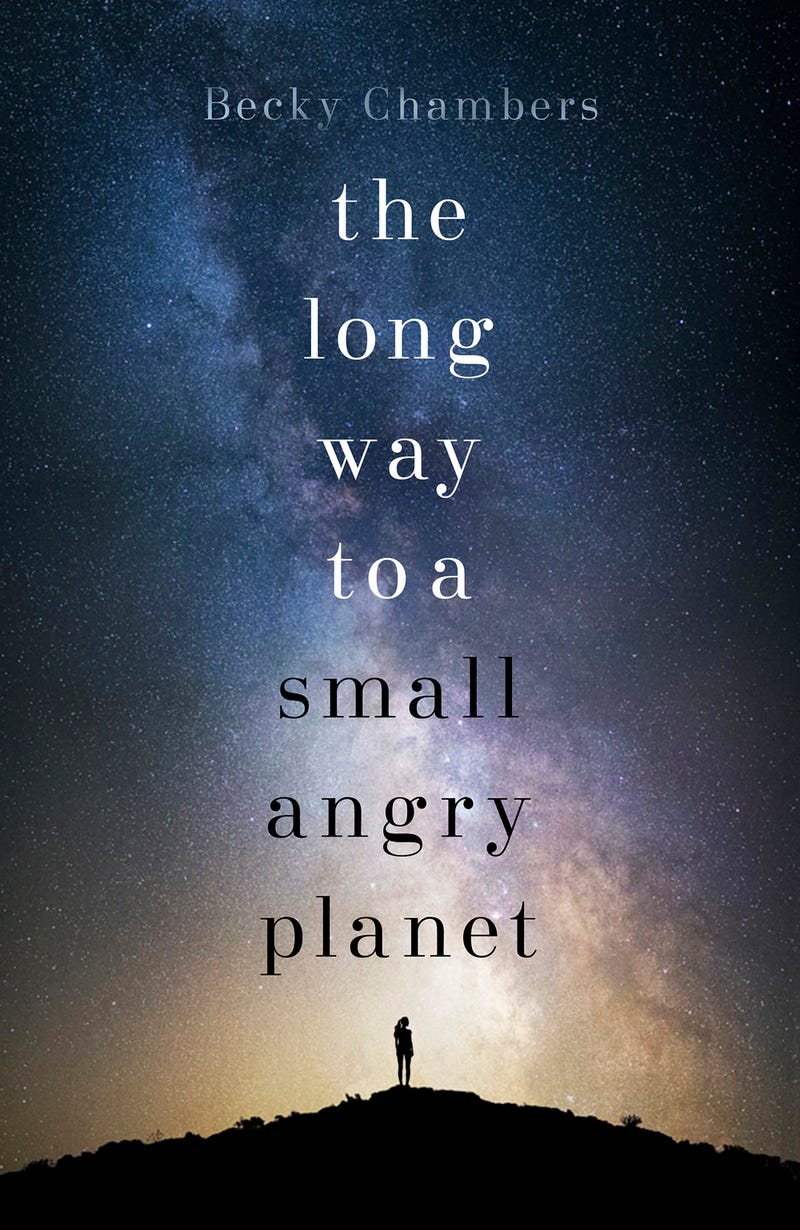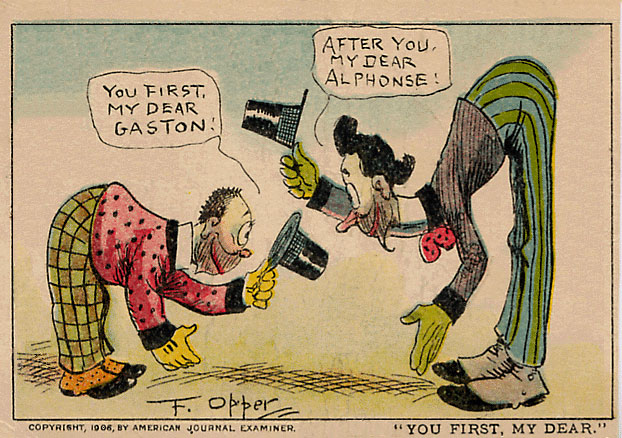It has taken me some time to put my finger on the problem I had with The Long Way to a Small Angry Planet, but let me say before I start on that, I liked The Long Way to a Small Angry Planet. It’s hard not to like a book that wears its heart on its sleeve the way this one does, dripping earnestness and longing to do the right thing from every page.

Ashby Santoso is the captain of the Wayfarer, which bores holes in space to permit rapid travel between far-distant planets. In this world, humans are a minor and unimportant species, so the crew of the Wayfarer is people by aliens and humans alike. When Rosemary Harper joins the crew as a clerk, trying to escape a painful past, she doesn’t expect to be signing on for a year’s journey through deep space to a little-known territory held by mysterious and warlike aliens.
The Long Way to a Small Angry Planet has garnered many comparisons to Firefly, and it’s a good comparison, but this book lacks the energy and humor of its television sorta-counterpart. Part of this is because it’s kinda like, Conscientious Tumblr in book form. If I had to summarize every conversation about tolerance and alien life that happened over the course of this book, I would do it thusly:
First character: I have used a gender-neutral pronoun to describe you, second character, because one does not know what pronouns a new person uses until one inquires.
Second character: Actually, you still did it wrong!
First character: Because cultural sensitivity is very important to me, I am horribly embarrassed by my mistake.
Second character: Don’t be! What matters is that you meant well and that you’ll do better next time.
First character: Sometimes cultural differences are hard, but I’m glad we could talk through it.
Which, I mean, there are far worse sins that a book can commit than an excess of courtesy, and on one level, it’s nice to see a book in which all the characters are really committed to not being prejudiced assholes. The problem, at least for me, is that none of them have any progress to make on the prejudiced-asshole front. Everyone is best friends. Actually more like family. Even the one character who occasionally says a racist word learns a Valuable Lesson by the end.
It’s all just curiously bloodless. For a book that’s so heavily focused on character, this one didn’t end up making me fall in love with anybody. I didn’t just want to know their public faces; I wanted to know their flaws. But they’re so hellbent on being respectful that there isn’t much space for anything else. Any time there might be an interpersonal conflict, they swiftly resolve it using only their words and general auras of thoughtfulness. It’s hard to find room for growth when everybody is so extraordinarily mature to begin with.

IS THIS CHURLISH OF ME THAT IS NOT A RHETORICAL QUESTION